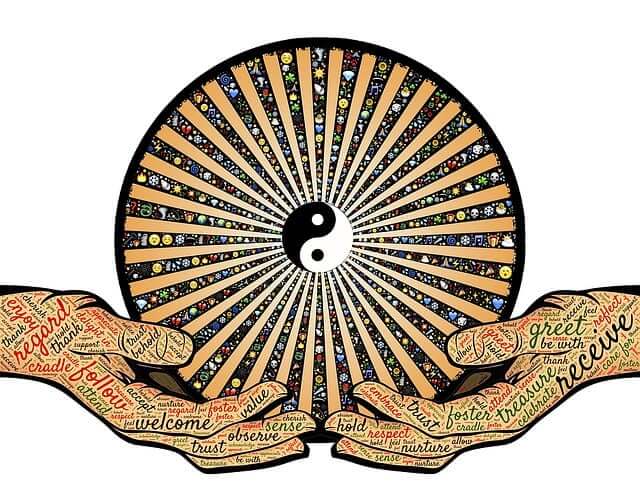Last Updated on May 5, 2025 by The Unbounded Thinker
‘He who clings to his work will create nothing that endures.’ – Lao Tzu, Tao Te Ching.
This saying by Lao Tzu, the author of the Tao Te Ching, speaks directly to modern society: a society in which people have become fixated on the outcomes of their careers, projects, or businesses due to the pressure to succeed. A society where people believe they must control every outcome, constantly work and force success. Or as Lao Tzu would have described it, a society that clings to work.
To cling to your work is to be obsessed with your work progress by constantly measuring the outcome. It’s to identify strongly with your work that you become obsessed with the desire for recognition, fear of failure, or the need to control the results.
It also involves identifying your work with your egoic mind so that your work progress or outcome determines your worth, and for this reason, the lack of success or delay in progress results in frustration. Generally, clinging to your work refers to an excessive obsession with success that you lose the joy of working.
Your work only becomes a means to an end: a stepping stone toward some imagined destination where you will finally feel enough. Work stops being fulfilling and it loses its divine purpose. It then becomes mechanical and draining as you sacrifice the present moment for an imagined future reward. You then lose touch with the qualities – spontaneity, intuition, and flow – which are mostly responsible for producing high-quality work.
Lao Tzu’s wisdom invites us to be aware of this clinging we have on our work, projects, or careers. He warns us that this approach to work ensures that we produce nothing that truly endures because anything created from a place of fear, pressure, or ego lacks the elements that make it timeless.
Take a look at the authors of timeless works like the books of the Bible and the Tao Te Ching. Take a look at the creators of timeless storybooks, philosophical ideas, songs, poems, and inventions. These people were never worried about the outcome. Instead, they were lost in their work as they focused on the process, not the results.
Their minds were not filled with thoughts of fame, sales, or recognition, because most of them did not create as a means of survival or as a way to achieve something else. They created for the sake of creation itself. They were seldom obsessed with how their work would be received as they were fully immersed in the process of creation. Their work was not driven by the need to please the world but by the need to express what was within them. These people were simply doing the work they were destined to do and this is why it became timeless.
Their work carried the spirit of surrender and the harmony of someone in tune with something greater than themselves. They were simply taking part in the expression of the creativity of a greater power.
This brings us to Lao Tzu’s full quote.
“He who clings to his work will create nothing that endures. If you want to accord with the Tao, just do your job, then let go.”
The second part of the quote deepens the wisdom. It tells us that the remedy for clinging is not to stop working, but to change our attitude toward the work. If we want to be in harmony with the natural order of life or the flow of life, we must relinquish our attachment to the outcome of our work. We must only put in the effort and let go of our expectations about the outcome.
Letting go is not laziness or carelessness. It’s the act of releasing control by surrendering our attachment to how things should turn out. It’s trusting that the process itself holds more value than the reward. It’s allowing the fruits of our labor to take their own form, without being distorted by our anxieties or expectations. Generally, it is to be in tune with life by allowing life to unfold at its own pace.
When we do our work and then let go, we open ourselves to divine creativity. We step out of the way and let the infinite intelligence or the natural flow of life work through us. And this is how meaningful, enduring creations are born, through presence rather than pressure or fear.
When we cling, we interfere with the natural flow of creation. We force what should be effortless. We rush what should unfold slowly and ripen with divine timing.
A clinging mind is preoccupied with results, and therefore, it cannot fully enter the present moment: the realm of true creativity. Such a mind ends up producing work that may only impress in the short term.
I came to understand this wisdom through experience. When I first started my blog, I was attached to the outcome. I was obsessed with success and I had to produce content that would boost my Google rankings. I wrote several short articles due to the pressure to stay consistent and rank higher on Google. But the result was disappointing. The quality of my writing declined, my connection to writing disappeared, and ironically, I lost much of the website traffic I was chasing.
That failure became a turning point. I let go of the need to impress or achieve. Now, I write simply because I feel that the wisdom within me was meant to be shared. It doesn’t matter whether ten people or ten thousand people read my posts. What matters is that I fulfill what feels like a divine duty: to express what life is teaching me in this moment.
In this surrender, writing is not stressful anymore and I no longer force inspiration. I wait for it, welcome it, and let it speak through me. And in doing so, I feel more aligned with what Lao Tzu calls the Tao. I’m beginning to understand what it means to live in harmony with the natural flow of life: to show up, do the work and then release it into the world without the attachment for validation.
Lao Tzu’s words are slowly becoming a living truth for me. I’ve noticed that ever since I let go of the need to achieve a specific result, the quality of my writing has naturally improved and I now write longer articles since I am not rushing to achieve a certain outcome. There’s also a deep satisfaction in expressing the ideas that flow through me, ideas that seem endless. Writing has become its own reward. And perhaps, just perhaps, that is the very path to creating something that will truly endure.
Shalom.






